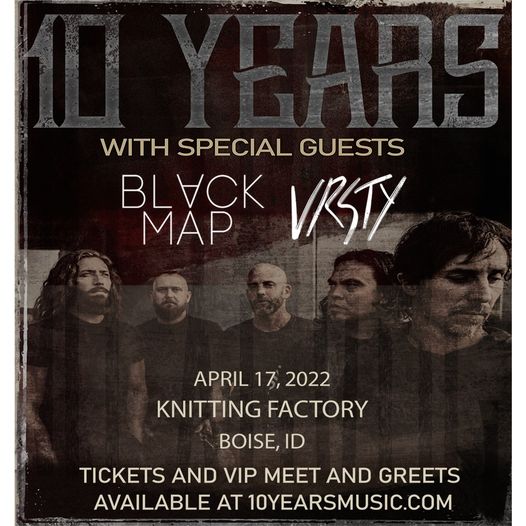
There are many scales that can be used for wargaming. These scales can be used to make paper or plastic model aircraft as well as miniature wargaming. These are the most popular. Let's get started with the 1:18 scale. This scale is used most often for aircraft kit construction.
Commonly used scale for wargaming
There are many options for wargaming scales. Some scales are well-known for their use in both ancient and modern times. Others are less common. They all have great model detail and can easily be used to recreate large-scale battles. Wargaming buildings and miniatures are usually made in this scale. Some manufacturers even go so far as to overscale the miniatures to 18mm scale.

For plastic model vehicles
Many pre-finished models are available for plastic model vehicles in this scale. Bandai makes many pre-finished scale models in this range, including Hogan Wings, Bandai, and Herpa. There are many scale model aircraft available in this size, including the Sails of Glory. However, some brands have shifted away from Saileri model to smaller scale models.
For paper models of aircraft
Paper model aircraft are often constructed at scales of one tenth of the actual size. Most models use sticks measuring 29cm or less. Larger planes will require more sticks. These sticks must be connected to form one unit. The arrangement of the wings and other structures will depend on how long the sticks are. Also, stick selection should be based on strength and space requirements. For example, a wing's chord must be higher than the leading edge. The choice of cross-sections will also depend on the thickness of the sticks.
Used to make wargaming minis
There are many different sizes of Wargaming minis. The smallest size is 32mm. The largest size is 35mm. Modern miniatures have a smaller scale, but some older wargaming characters are smaller and smaller than the latest. Although they are considered "pico" scale, the smaller figures are often used for mass-combat wargames.
For RC cars
There are many different types of remote-controlled cars. But if your goal is to make a hobby out of it, a 1/10th scale car is the best. These cars are small enough to fit in your pocket but big enough to perform well on any terrain. An electric 1:10 scale car is a good starting point. Then you can move on to larger gassers or nitro cars.

This is used for architectural models
When building architectural models, you can choose from a variety of scales. The most widely used scale is 1:10. This scale is used when building a model of a specific building. Other scales include 1:200, 1:2500, and 1:500. The scale will depend on the purpose, level of expertise, and materials used.
FAQ
What are educational hobbies?
An educational hobby is an activity where you learn something by doing it. It could be anything, from playing sports to learning how an instrument is played.
It should be enjoyable and have fun. It doesn't have to be done all the time. However, if you get bored of it, you should think about other things you can do instead.
Also, you need to be careful not to spend too much on these activities. They can end up costing more than you think.
How much does a hobby cost you?
It costs nothing to start a hobby. If you're serious about your hobby, it can take you years to get what you want.
But there is one thing you can do to help yourself. It's called 'passion.' If you have passion for whatever it is you do, you will find it easier to put in the hours required to make progress.
And once you start putting in those hours, you may find that you become addicted to the activity. This is when the real fun begins. Because you are enjoying what you are doing and are constantly improving. By the end of the year you'll have probably made a lot of progress.
Don't be too concerned about how long it takes. Give it a shot. You might be surprised at the results!
What hobbies are popular right now?
Popularity does not always mean that you are popular. Popularity can often be used to excuse mediocrity. The fact is that most people do not have time to pursue any hobby they want. They're too busy working to make ends met. What do you do with your spare time? You could also start your own business.
But it's not an easy task. There are many obstacles to overcome before you can turn your idea into reality.
So if you're looking for something more exciting than running a business, you should consider pursuing a hobby.
Hobbies can be more than just creative pursuits. There are many different kinds of hobbies available. These hobbies include:
-
Gardening
-
Cooking
-
Photography
-
Reading
Is it possible to become rich from a hobby?
Not necessarily.
However, if you're interested in creating a business based on your hobby, then you could definitely end up being wealthy.
Let's take, for example, that you love cooking. You love healthy food and decided to open a restaurant.
Customers are charged a small fee for organic food made from scratch.
You can grow your clientele over time and eventually hire employees who will work alongside you.
Eventually, you expand your menu to include gluten-free options, vegan dishes, and desserts.
This is how you have created a successful company that has enabled you to enjoy the lifestyle you desired.
Of course, this doesn't mean you must give up your day job.
You could also run your restaurant, while still maintaining your 9-5 job.
What are your top hobbies?
Your favorite hobbies are ones you enjoy. If you love what you do then you'll find it much easier to keep going. This will give you a reason for not feeling well, or tired.
We all have hobbies that we love and know. These include painting, crafting, photography, cooking and sports.
You might also consider volunteering at a local charity shop or animal shelter, children’s hospital, hospice, elderly home, school, community centre, church, and other places.
If you're looking to do something more adventurous, Why not take up scuba diving, rock climbing, sky diving, bungee jumping, white water rafting, sailing, surfing, canoeing, kayaking, horse riding, zip lining, hang gliding, paragliding, skydiving, snowboarding, skiing, mountain biking, hiking, camping, fishing, hunting, archery, shooting, clay pigeon shooting, target shooting, golf, tennis, swimming, snorkeling, windsurfing, waterskiing, kitesurfing, wakeboarding, standup paddle boarding, hang gliding, parasailing, hot air ballooning, paragliding and many more.
There are many ways to enjoy nature, even if you don't want to travel far. These include caving, cliff diving, cave tubing, abseiling, sea kayaking, rafting, canoeing, climbing, trekking, bushwalking, mountaineering, backpacking, trail running, orienteering, off-road driving, quad biking, motorcycling, motorcycle riding, dirt bike riding, jet boating, hang gliding, hang gliding, parachuting, hang gliding, heli-skiing, ice skating, snowmobiling, snowshoeing, snowshoeing, cross country skiing, downhill skiing, telemark skiing, ski touring, sled dog racing, snowboarding, snowkiting, snowmobiling, spelunking, snowshoe hiking, snowshoeing and many more.
Statistics
- Much of this decline reflects the fact that teens are less likely to work today than in the past; among employed teens, the amount of time spent working is not much different now than it was around 2005. (pewresearch.org)
- This 100% accurate personality-analyzing hobby quiz discovers your passion based on your characteristics. (quizexpo.com)
- In comparison, men in the “no humor” condition were refused 84.6% of the time and were only accepted 15.4% of the time. (time.com)
- I am 100% biologically a woman (discover.hubpages.com)
- 37% Video Games 36% Travel 36% Health and Fitness (quizexpo.com)
External Links
How To
How to learn a musical instrument
There are many methods to learn music. There are many options. You can go to school, purchase a book, learn from an instructor, or watch videos online. Here are some tricks and tips to help you find your way.
-
Find something that interests your interest. You don't have to like every instrument you see. It would be hard to get into playing an instrument if you don't enjoy doing it.
-
Be patient. Learning anything new takes some time. It is unrealistic to expect to know everything instantly. Instead, continue to practice each day.
-
You should practice often. Do this even when you feel tired. This will ensure that your memory doesn't fade.
-
Choose a good place to practice. The ideal place to practice is one that is quiet and won't be disturbed by anyone else. Be sure to not distract others. For example, avoid having loud music playing nearby.
-
Have fun. Music should be enjoyed. Have fun with your practice. It will make you more motivated to keep going.
-
Set goals. Set goals. You'll know exactly what you must achieve. Therefore, you will have no excuse for failing.
-
Keep track and keep track of your progress. Keep track of all your successes and failures. You'll be able to learn and improve as you go.
-
Take breaks. Sometimes it is enough to just stop and think. Taking breaks can give you the time to think.
-
Ask questions. Ask for help if you are unsure or have questions about certain aspects of the instrument. They may be able to help you out.
-
Learn by listening. Many musicians enjoy listening to their favorite songs and trying to imitate them. This helps them understand basic concepts behind the song.
-
Read books. You will learn more from reading books than you can by watching videos or attending classes. Books can also provide information that is not available elsewhere.
-
Get involved in a band. You'll be more motivated to practice when you are playing with others. Plus, you'll meet people with the same interests as you.
-
Take a look at tutorials. Tutorials are brief videos that cover a variety of topics in great detail. These videos typically focus on one aspect of the instrument. Tutorials can help you understand complex parts of your instrument.
-
You can try different methods. Some people prefer to learn via lectures while others prefer to read. Keep trying until you find your preferred method.
-
Practice makes perfect. The truth is that nobody becomes an expert overnight. It is important to put in a lot of effort before you can become skilled enough to perform well.
-
Get along with other musicians. Listening to your fellow musicians perform their favourite songs can help you learn quicker.